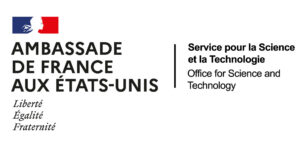atlanta
atlanta
atlanta
atlanta
atlanta
atlanta
atlanta
atlanta
la synapse
la synapse
la synapse
la synapse
la synapse
la synapse
la synapse
la synapse

History
The city of Atlanta is well known as the birthplace of the American civil rights movement. Its contribution to American history is illustrated in the Martin Luther King, Jr. National Historic Park. The city’s reputation was also enhanced by the 1996 Olympic Games, held in Centennial Olympic Park, which has become one of the city’s landmarks, often hosting festivals, concerts and international conventions. The city’s recent development has led to the creation of new public spaces such as the Ponce City Market and the Belt Line, inspired by New York’s High Line.
General Economy
Over the past few decades, Georgia’s economic growth has been boosted by the state’s favorable cost of living, access to capital and real estate, the quality of its workforce, its infrastructure and logistics network, and its business-friendly regulatory and tax environment. In particular, the Atlanta metropolis benefits from the presence of prestigious universities, which provide a qualified workforce at a competitive price due to the lower cost of living than in other major metropolises. For example, the average salary for a software engineer in Atlanta is $90k per year, compared with $135K per year in San Francisco.
In terms of logistics, 80% of American consumers live less than two hours by air and less than two days by road from Atlanta.
Finally, local associations are very active in developing the city’s economic fabric. The Metro Atlanta Chamber, for example, seeks to raise Atlanta’s profile in the U.S. and around the world by promoting the region and connecting players in the ecosystem to attract new investment. Programs such as Georgia Quick Start enable companies to find or train workers free of charge.
Science and Innovation
Georgia Tech is renowned for its expertise in a wide range of engineering fields, including aerospace, robotics, mechanics and computer science. The university has a campus in Metz, recently renamed Georgia Tech Europe, which welcomes some 300 American students every year. Emory University, meanwhile, is renowned for its healthcare training, and is home to the Emory Vaccine Center, the world’s largest university vaccination center. The third R1-rated research university in Atlanta is Georgia State University, a university focused on diversity access to higher education, which is one of the leading urban research universities in the country and the only one in Georgia. These institutions bridge the gap between academic research and entrepreneurship through incubation or acceleration programs, such as Create-X, VentureLab and Creative Destruction Lab at Georgia Tech, and The Hatchery at Emory University. Universities are also supported by statewide initiatives, such as the Georgia Research Alliance, a non-governmental organization that invests in scientific research geared towards entrepreneurship.
Accompaniment and Support
In addition to university-led innovation support, metro Atlanta is home to other incubators and accelerators that help startups grow. For example, Atlanta Tech Village is one of the largest grands hubs in the U.S., incubating over 300 startups and helping them benefit from its partnerships with major corporations such as Alphabet (Google), Amazon, Microsoft and Coca-Cola. In Peachtree Corners, a city located in the Atlanta metropolitan area, the Curiosity Lab incubator focuses on the development of smart cities, thanks to its urban infrastructures that enable innovations to be tested under real conditions.
With its strong business scene and support structures, Atlanta’s innovation ecosystem has seen the emergence of 6 new unicorns in 2021 – bringing their total number to 14 – in sectors such as supply chain, fintech, smart cities and medtech.




